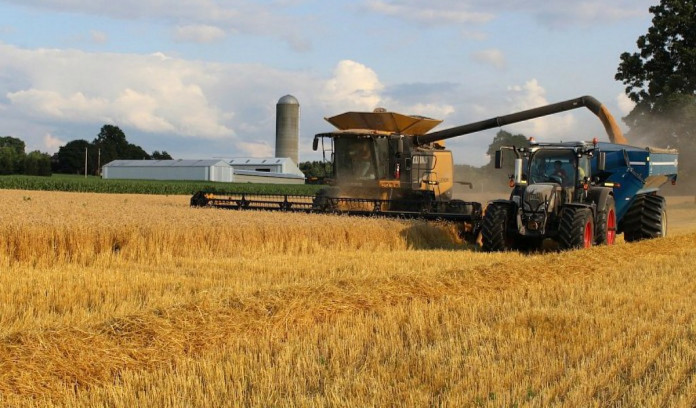It’s Thanksgiving Week, and for many farmers, finding things to be thankful for is a little tougher this year. Commodity prices have dropped — fed cattle prices in Kansas are down roughly 23 percent from September 2015 and corn prices are down about 16 percent. Milk prices in 2016 will likely be down 6% from the previous year.
One friend in South Dakota tells me she’s selling wheat for the same price her grandfather did 40 years ago.
At the same time, the trend line for input costs — primarily seed, pesticide and fertilizer costs, as well as cash rents — looks like a stick drawing of an ascent of Mount Everest: straight up.
In 1990, the sum of seed, pesticide and fertilizer costs to grow an acre of corn in central Illinois was $98/acre, according to University of Illinois Ag Economist Gary Schnitkey. In 2014, that figure was $358 an acre.
I don’t mean to be Debbie Downer, because most of my farm readers are living this day-in and day-out. But I want to be sure nonfarm readers understand the stark reality their farm brethren are facing.
What many consumers (and possibly farmers) also don’t understand is that we pay very little — in terms of our total disposable income — for food. Between 1955 and 2002, the share of consumer expenditures (real inflation adjusted) spent on food declined from 23.5% to 11.8%, according to Ohio State Ag Economist Carl Zulauf.
The farm production value of U.S.-sourced food during that same time period dropped from a 7.2% share of personal consumption expenditures in 1955 to 1.4% in 2002.
And since we’re talking Thanksgiving, the National Farmers Union tells us that wheat farmers get only 4 cents of the $3.29 you spent on 12 dinner rolls this year.
So, at a time when the national support seems to be high for farmers — as evidenced from the interest in knowing where food comes from, local food and farmers market booms, as well as immense interest in “all things food” by consumers — that support simply doesn’t translate into higher prices for farmers. That’s because it’s a complicated, international ag world we live in.
We can feed the world, but we just can’t make ends meet down on the farm.
What I ask of you, dear readers, as we sit at tables of bounty this Thanksgiving, is to look for opportunities to express your gratitude to farmers — whether you are one, whether you long to be one, whether you work with farmers, or whether you simply eat three squares a day.
The stress of farming is eased by knowing that people genuinely care, and appreciate the often selfless work that is done on the farm. Now’s the time to lift one another up.
* * *
By Susan Crowell













